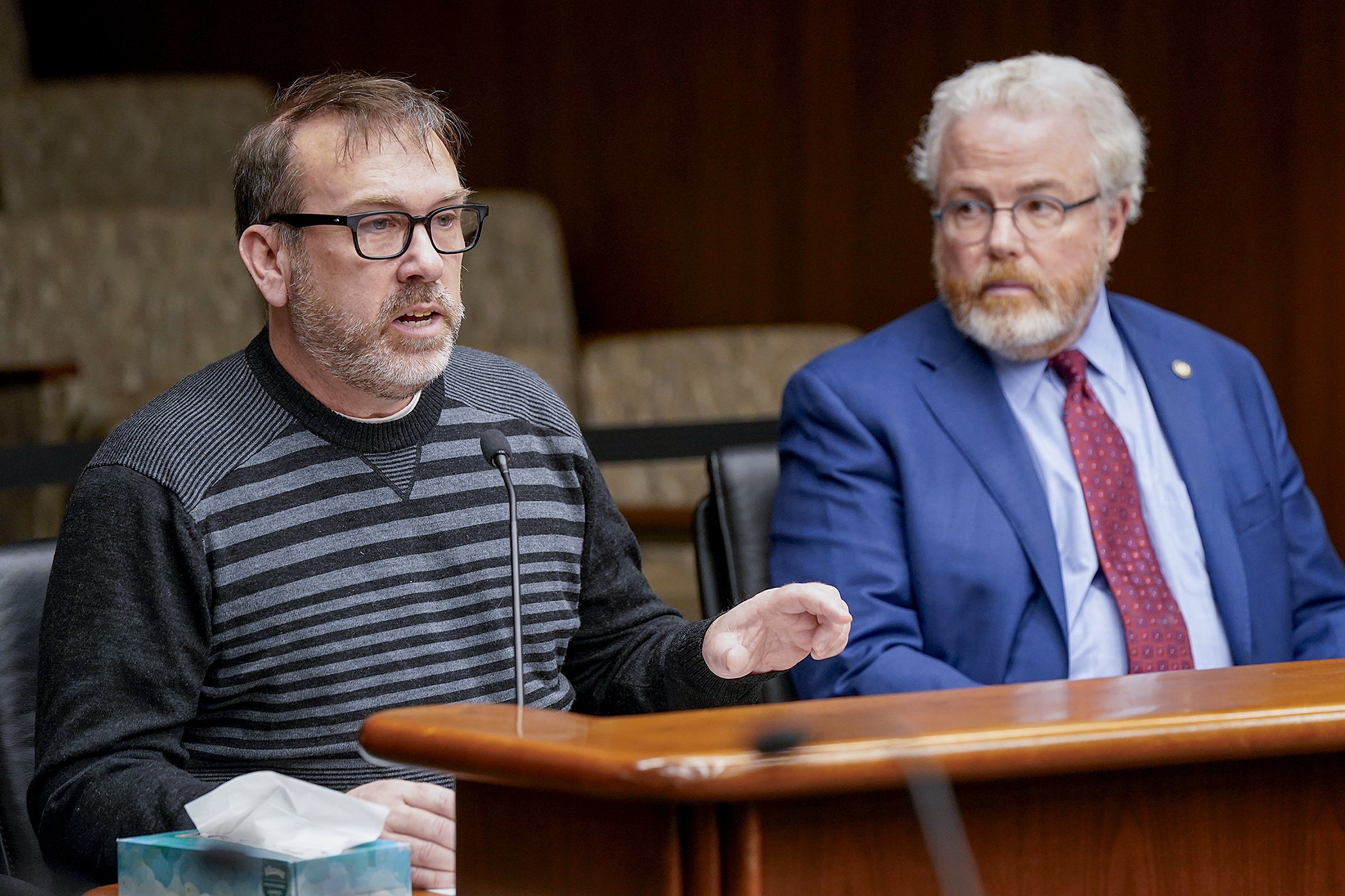Software could speed up homeowners’ switch to solar

If you want to speed up the process of putting solar panels on your house, Rep. Ned Carroll (DFL-Plymouth) suggests there’s an APP for that.
The “APP” in SolarAPP+ stands for “automated permit processing plus,” and is a type of software developed by the U.S. Department of Energy’s National Renewable Energy Lab in 2021. It makes it possible for local jurisdictions to streamline the approval system and issue permits for residential solar energy systems or solar-plus-storage systems in swift fashion.
It’s free of charge to local units of government that want to deploy it, but Carroll is concerned that word isn’t getting out. So he’s sponsoring HF5171, which, as amended, would establish a Commerce Department program to provide incentives of between $5,000 and $20,000 to local permitting authorities to adopt SolarAPP+.
The bill was laid over Tuesday for possible inclusion in a larger climate and energy bill.
“Currently, solar permitting processes are often inefficient and increase soft costs by upwards of thousands of dollars for Minnesotans,” Carroll said. “They increase the number of applicants who drop out of solar projects prior to installation, and deter would-be solar users from engaging in a drawn-out process. … Some jurisdictions take up to six weeks.”
That process has been shortened to one day in some municipalities using SolarAPP+, according to the National Renewable Energy Lab. Among those advising the Department of Energy on the development of SolarAPP+ was Ben Davis, chief of policy for advocacy organization Permit Power.
“In Germany, one in five homes has solar,” Davis said. “We have similar hardware and labor costs as Germany, and Minnesota has much more sun. But what’s different is that Germany and much of the rest of Europe has completely cut the red tape.”
According to the National Renewable Energy Lab, 150 U.S. cities or counties in 10 states are currently using SolarAPP+.
Rep. Pat Garofalo (R-Farmington) supports the bill’s intent to make the permitting process more efficient, but questioned why the state is encouraging residential rooftop solar, which he called “one of the most expensive forms of renewable energy.”
Rep. Patty Acomb (DFL-Minnetonka) replied that it’s going to take all forms of solar — rooftop, distributed and utility-scale — to reach the state’s goal of using only carbon-free energy sources by 2040.
Related Articles
Search Session Daily
Advanced Search OptionsPriority Dailies
Speaker Emerita Melissa Hortman, husband killed in attack
By HPIS Staff House Speaker Emerita Melissa Hortman (DFL-Brooklyn Park) and her husband, Mark, were fatally shot in their home early Saturday morning.
Gov. Tim Walz announced the news dur...
House Speaker Emerita Melissa Hortman (DFL-Brooklyn Park) and her husband, Mark, were fatally shot in their home early Saturday morning.
Gov. Tim Walz announced the news dur...
Lawmakers deliver budget bills to governor's desk in one-day special session
By Mike Cook About that talk of needing all 21 hours left in a legislative day to complete a special session?
House members were more than up to the challenge Monday. Beginning at 10 a.m...
About that talk of needing all 21 hours left in a legislative day to complete a special session?
House members were more than up to the challenge Monday. Beginning at 10 a.m...